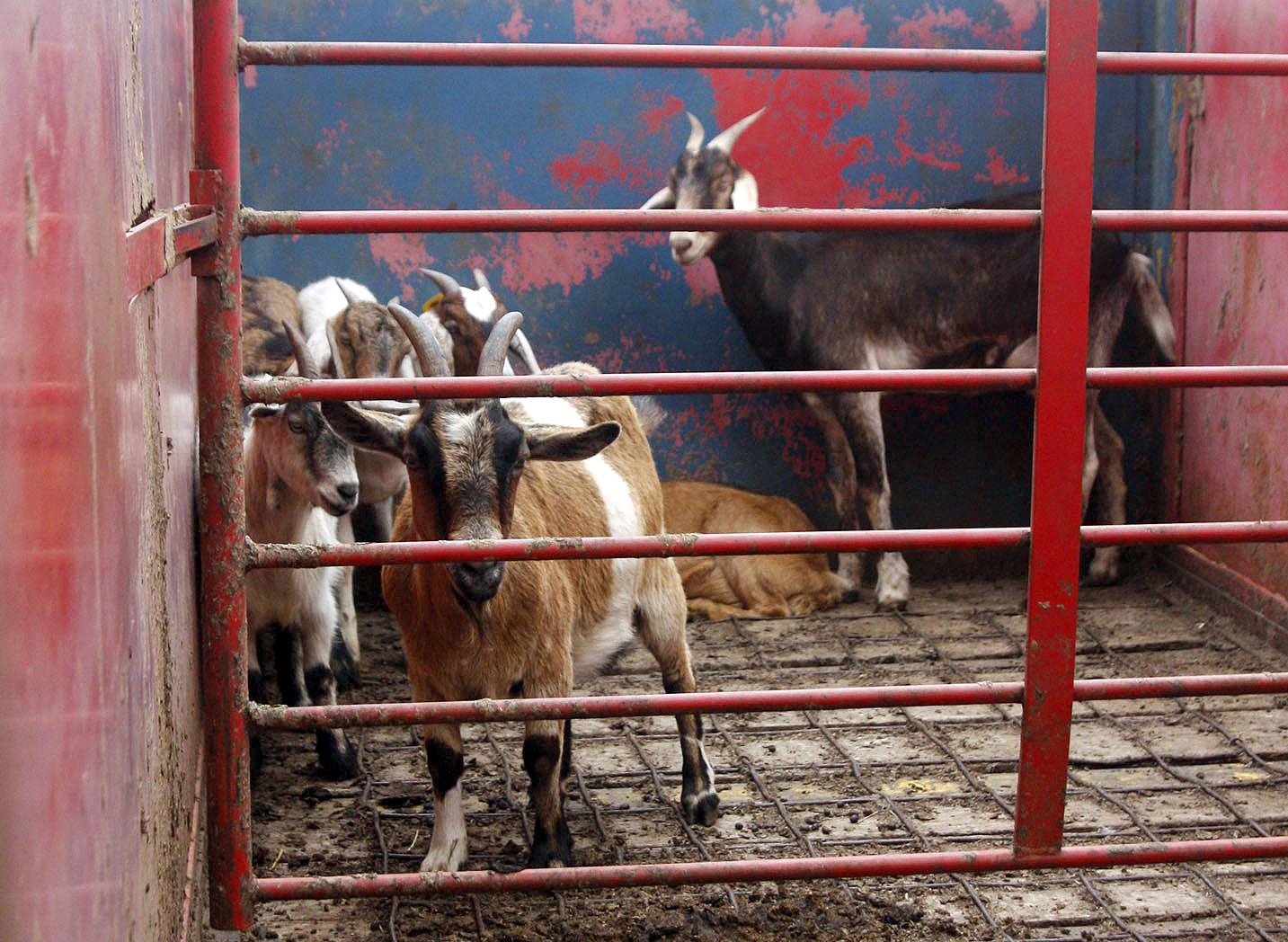Athens, Ga. – The University of Georgia has some new four-legged residents, and they have a job to do.
Eight goats now live in a fenced-in pen next to the Hull Street parking deck and will remain there until the end of the spring semester. The goats, known as the Tanyard Creek Chew Crew, are part of a student-run prescribed grazing project funded by a 2012 Sustainability Grant from the UGA Office of Sustainability. The goats are eating invasive plant species—such as English ivy and privet—growing along Tanyard Creek in an effort to restore native forests adjacent to the waterway.
Zach Richardson, a senior landscape architecture student, developed the project along with his faculty advisor Eric MacDonald, an assistant professor in the College of Environment and Design. Richardson learned about the benefits of targeted grazing in his classes, and after UGA implemented an invasive-removal program using sheep last year, he got the idea to develop a similar program along Tanyard Creek.
Using goats to clear out the land around Tanyard Creek is an environmentally friendly form of invasive control, Richardson said. The goats are there in place of heavy machinery or pesticides, they stay out of the creek, and they don’t damage the soil along the creek bed.
The benefits of using goats go beyond removing invasive plants, however. Richardson said students who pass by the goats on the way to class are able to stop, read the signs posted along the fence and learn about how the goats are helping restore native plant life on campus. Students also have the opportunity to get involved in the project. Volunteer workdays are held every Wednesday from 3:30-6 p.m., and members of the public help remove invasive plants from the goat pen in an effort to help the goats in their grazing responsibilities.
“There’s an element to the project of connecting students to their campus and their creek and celebrating that,” Richardson said.
The goats have provided students in several different majors with a way to connect with the project and share it with the rest of campus. Two photography students and three English students will be documenting the goats’ progress with photos and video and will compile the footage into a project at the end of the semester. Students in MacDonald’s ideas of community and place class have focused on the goats as a local landscape restoration project and have planned several events centered around them. These events include a Goat Day in Tate Plaza during Earth Week and KidFest, an event for kids on the day of the G-Day game. A group of students in the class is also submitting the project for an American Society of Landscape Architecture Student Collaboration Award, which recognizes student-driven landscape architecture projects that involve exceptional collaborative effort.
The project is providing many opportunities for research: to determine how effective the goats are, how many goats might be ideal to complete the job, how long the prescribed grazing took to complete and other questions, Macdonald said.
“It’s a fairly new, innovative technique, and there are lots of research questions one can ask about it,” he said. “Given that we are a research institution, it seems to make sense that we should be engaging in that study right here in our own backyard.”
To learn more about the Office of Sustainability, see www.sustainability.uga.edu.


